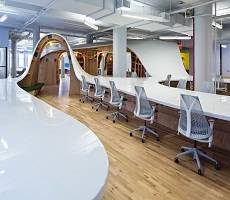March 13, 2014
Over three quarters of staff say employers play equal role in their health & wellbeing
 Nearly 80 per cent of UK workers believe responsibility for managing staff health and wellbeing should be shared between both employer and employee. The ‘Employee View – Health and Wellbeing in the Workplace’ survey, conducted by health insurance provider Westfield Health, found the majority (79%) of respondents felt there should be an even balance between them and their employer when it came to taking care of their wellbeing. Nearly three-quarters (74%) also said knowing their employer cares about their health would make them more likely to be satisfied, loyal and motivated at work. And almost a third (30%) asked for better communication in the workplace about the types of wellbeing programmes on offer to them. (more…)
Nearly 80 per cent of UK workers believe responsibility for managing staff health and wellbeing should be shared between both employer and employee. The ‘Employee View – Health and Wellbeing in the Workplace’ survey, conducted by health insurance provider Westfield Health, found the majority (79%) of respondents felt there should be an even balance between them and their employer when it came to taking care of their wellbeing. Nearly three-quarters (74%) also said knowing their employer cares about their health would make them more likely to be satisfied, loyal and motivated at work. And almost a third (30%) asked for better communication in the workplace about the types of wellbeing programmes on offer to them. (more…)























March 10, 2014
The workplace of the future is one founded on uncertainty
by Mark Eltringham • Comment, Facilities management, Flexible working, Technology, Workplace, Workplace design
(more…)